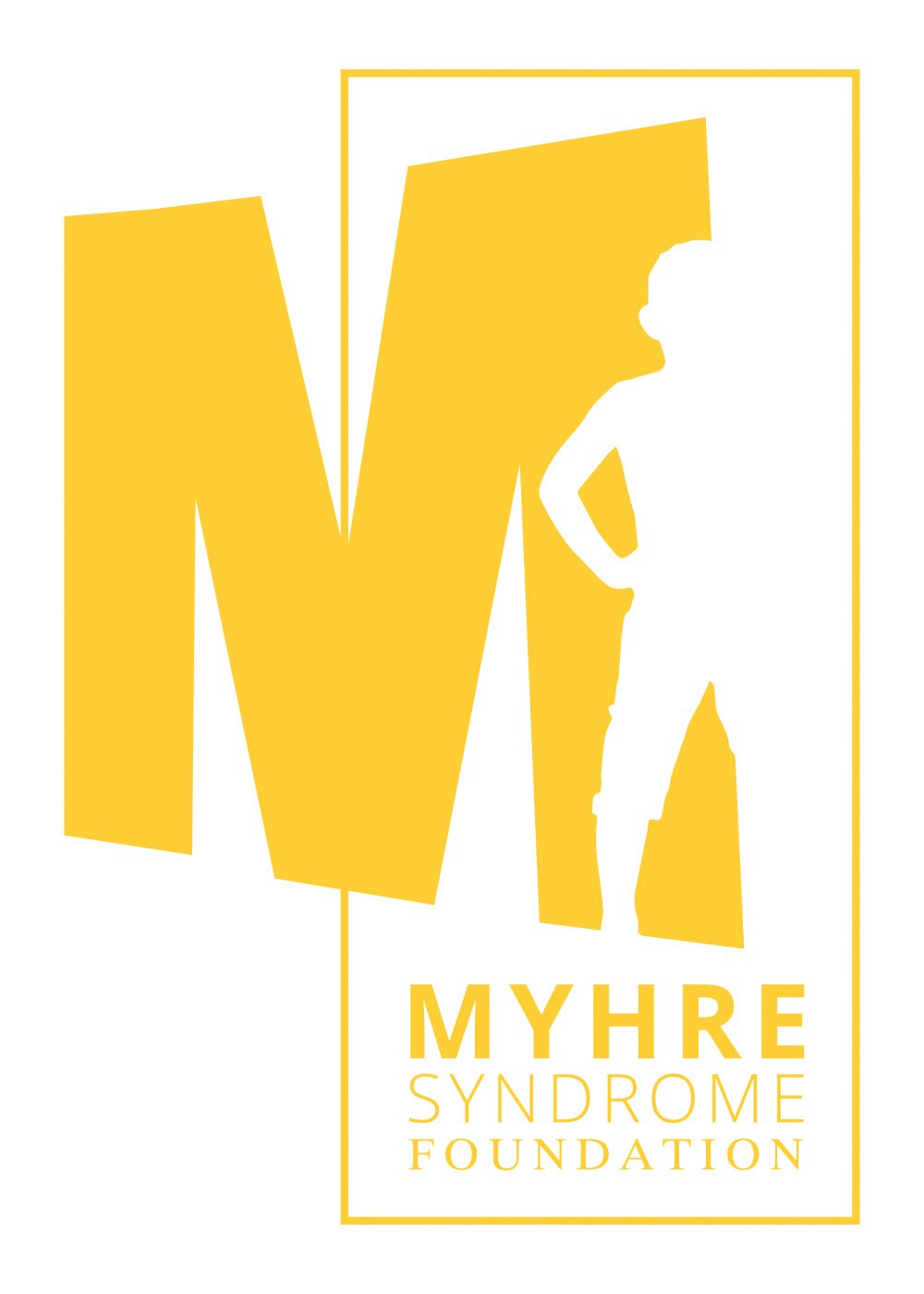This is a short guide for educators on how they can support children and young adults with Myhre syndrome. We encourage you to send this link or print this article to give to them. Click here for a PDF of this article to share.
Understanding Myhre syndrome:
When working with students and families affected by Myhre syndrome, it's important to recognize that many parents find themselves in the challenging position of advocating for their children and educating healthcare, educational, and other professionals who may not be familiar with the condition. This task can be overwhelming and stressful.
Sensitivity to Caregiver Roles:
Educators should be sensitive to the significant role caregivers play in the lives of children with rare disorders like Myhre syndrome. They often face added stressors due to the unique needs of their children.
Tips: Let your teacher know how living with a rare disease affects your household, including you as caregivers and any siblings.
Educator Preparation:
Educators should take the initiative to independently research and learn about Myhre syndrome. Additionally, they should be open to receiving information provided by caregivers with gratitude and a willingness to understand each student's unique needs.
Tips: We recommend that your child’s teachers and support teams visit this website and review the Myhre Syndrome Patient and Family Handbook.
Symptom Awareness and Collaboration:
Symptoms and characteristics of Myhre syndrome may go unnoticed without collaborative planning and communication regarding healthcare needs. For instance, some students may have limited mobility and decreased stamina, requiring adaptations to navigate the school environment and participate in activities like recess and physical education.
Tips: Talk to your school about how they can accommodate your child’s needs and inform all departments of any limitations, including physical education teachers and yard duty volunteers at recess. Would adaptive equipment help your child have a fully inclusive experience? We encourage all departments to discuss this with you.
Individual Differences:
While individuals with Myhre syndrome share a genetic profile, the severity and manifestation of symptoms can vary greatly among students. It is essential to recognize and accommodate these individual differences in planning and support.
Tips: Ensure your school team and nurses know how Myhre syndrome can affect children. For example, they should ensure they have all the information available to give to emergency responders should that need arise. Intubation is a risk factor, so all parties must know the recommendations in place. (See the Myhre Syndrome Patient and Family Handbook for more details). Anecdotally, we hear from the parents of children with Myhre that the pain threshold is very high. A child with Myhre syndrome may not mention pain even when there could be some trauma. There should be a low tolerance for intervention or checks.
Inclusive Environment:
Like all children, students with Myhre syndrome tend to thrive in supportive classroom environments. Enabling them to do this alongside their general education peers will allow them to flourish fully. Inclusive programming should be the guiding principle in individual planning to ensure their success.
Tips: Ask the school about the options of your child staying in a mainstream classroom but with additional aids or one-to-one guidance. The academic and social environment amongst general education peers is hugely beneficial.
RECOMMENDATIONS
Varied Needs:
Students with Myhre syndrome have diverse and often complex needs that require individualized support to thrive academically and socially.
Tips: If you don’t feel your child is receiving a personalized and individual education plan, call a meeting with your teacher and executive team at the school. If you are still unsatisfied with the response, further local authority resources are available to help you.
Communication and Collaboration:
Establishing open lines of communication with parents and, when necessary, healthcare providers is essential for effective collaboration in supporting the student's needs.
Tips: Ensure you are meeting with the school and all of your child’s teachers at least once every academic year and that if in place, the key milestones and progress are being met to help your child reach their full potential. Ask questions and seek to understand your child’s learning environment. If you need more information, it is your right to ask for it.
Comprehensive Assessment:
A comprehensive assessment across various function domains, including cognitive, academic, social-behavioral, adaptive, occupational, physical therapy, and communication, is crucial for developing personalized plans for these students.
Tips: It is common for children with Myhre syndrome to have an Individualized Education Plan (IEP), and similar schemes exist worldwide. Ensure that each area above is being evaluated so that the plan meets your child's comprehensive needs, not just academics. This may include social-emotional, adaptive, physical, etc.
Medical Support:
For medically complex students, having a school-based healthcare provider or medical liaison as part of the support team may be necessary to address their unique medical needs effectively.
Tips: Contact your school and see if they have a dedicated nurse or shared resource for schools in your area. We recommend meeting with the nurse or support team to discuss Myhre syndrome and how it can present.
By following these best practices and maintaining a collaborative approach, schools can better support students with Myhre syndrome in reaching their full potential academically, socially, and emotionally.


